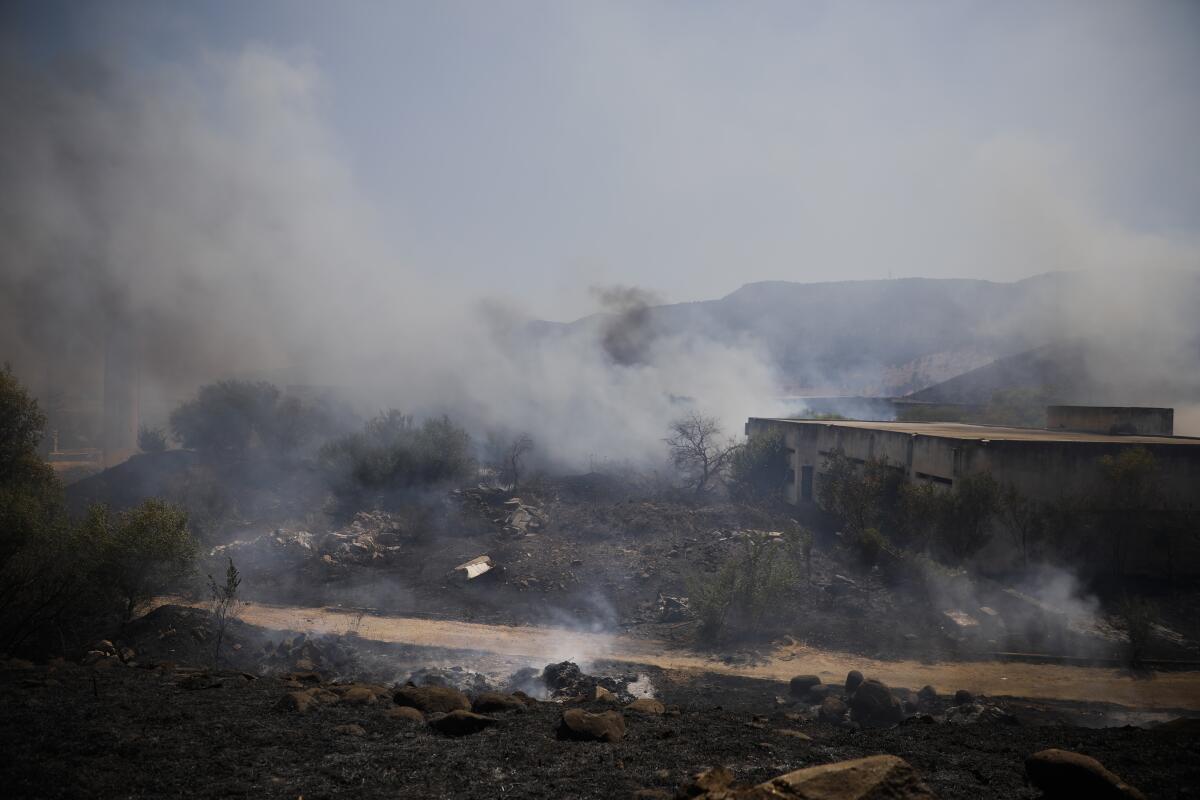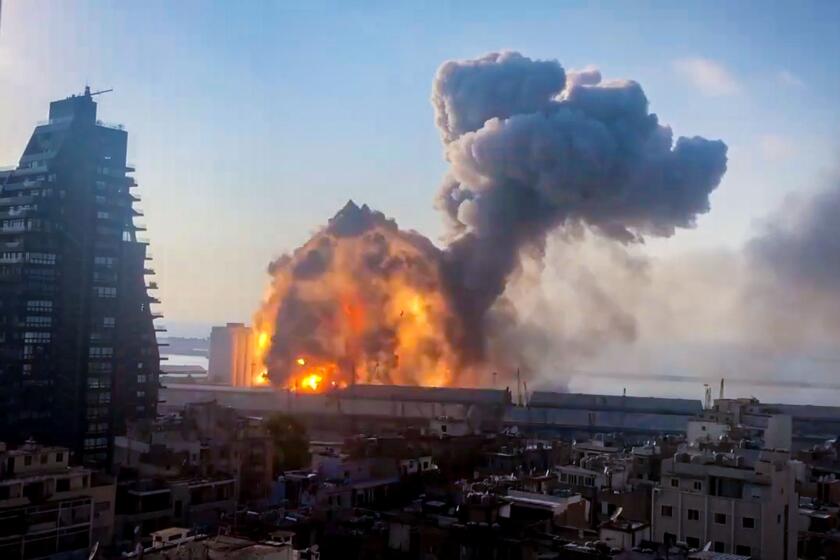Israel launches rare airstrikes on Lebanon in response to rocket fire

- Share via
TEL AVIV — Israel on Thursday escalated its response to rocket attacks this week by launching rare airstrikes on Lebanon, the army and Lebanese officials said.
The Israeli army said in a statement that jets struck the launch sites from which rockets had been fired over the previous day, as well as an additional target from which Israel was attacked in the past. The army blamed Lebanon for the shelling and warned “against further attempts to harm Israeli civilians and Israel’s sovereignty.”
The overnight airstrikes on southern Lebanon were a marked escalation at a politically sensitive time. Israel’s new eight-party governing coalition is trying to keep peace under a fragile cease-fire that ended an 11-day war with Hamas’ militant rulers in Gaza in May. Several incidents leading up to this week’s rocket fire from Lebanon have focused attention on Israel’s northern border, and the United States swiftly condemned the attacks on Israel.
The strikes also come as Lebanon is mired in multiple crises, including a devastating economic and financial crisis and political deadlock that has left the country without a functional government for a full year.
Lebanese President Michel Aoun said Israel’s use of its air force to target Lebanese villages “is the first of its kind since 2006 and indicated the presence of aggressive, escalatory intentions” against Lebanon. In a statement, he said Lebanon would submit a complaint to the United Nations.
Israel and the Lebanese militant group Hezbollah fought a devastating, monthlong war in 2006 which killed some 1,200 Lebanese, mostly civilians, and around 160 Israelis, mostly soldiers. The war failed to neutralize the group’s rocket threat, and Israeli officials say Hezbollah’s improved missile arsenal is now capable of striking virtually anywhere in the country.
The imposing grain silos at Beirut’s port mostly withstood last year’s massive explosion — but now serve as reminders of negligence and destruction.
No one has claimed responsibility for the rocket fire from Lebanon, and Hezbollah has not commented. The Hezbollah-owned Al-Manar TV reported the Israeli strikes at about 2 a.m. Thursday, saying they hit an empty area in Mahmoudiya village in Marjayoun district.
Avichai Adraee, the Israeli army’s Arabic-language spokesman, said the Lebanese government was responsible for what happens on its territories and warned against more attacks on Israel from south Lebanon.
Three rockets were fired from Lebanon into Israeli territory Wednesday and were met by sustained artillery fire, Israel’s military said. The announcement came after sirens sounded in northern Israel warning of a possible rocket attack. Two rockets landed inside Israeli territory, the army said.
Channel 12 reported that one rocket exploded in an open area and another was intercepted by Israel’s Iron Dome missile-defense system. Israeli media reported that the incoming rockets started fires near Kiryat Shmona, a community of about 20,000 people near the Lebanese border.
The government says a dam is necessary to provide drinking water in an era of rising temperatures and climate change. Activists say it’s another corrupt government project.
The Lebanese military reported 92 artillery shells fired by Israel on Lebanese villages as a result of the rocket fire from Lebanon. It said the shelling resulted in a fire in the village of Rashaya Fukhar. In a statement, the Lebanese army also said it was conducting patrols in the border region and had set up a number of checkpoints and opened an investigation to determine the source of the rocket fire.
There have been several similar incidents in recent months.
U.S. State Department spokesman Ned Price condemned the rocket fire from Lebanon.
“Israel has the right to defend itself against such attacks,” he told reporters in Washington, adding that the U.S. would remain engaged with partners “in the region in an effort to de-escalate the situation.”
At the United Nations, spokesman Stephane Dujarric said the U.N. peacekeeping mission in Lebanon, known as UNIFIL, was aware of the rocket fire and Israel’s artillery response. He said the UNIFIL commander, Maj. Gen. Stefano Del Col, appealed for a cease-fire and urged both sides to “exercise maximum restraint to avoid further escalation.”
More to Read
Sign up for Essential California
The most important California stories and recommendations in your inbox every morning.
You may occasionally receive promotional content from the Los Angeles Times.















